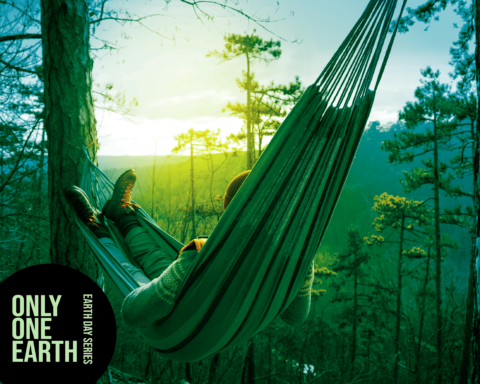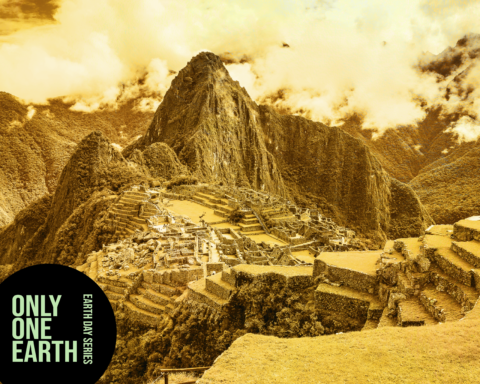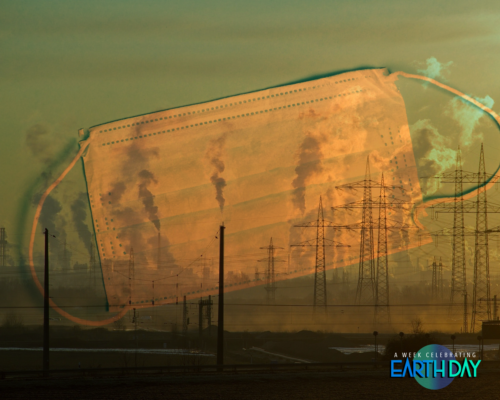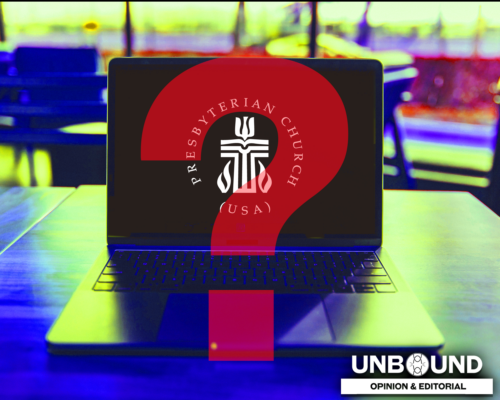Many people are experiencing our most recent days as if we were in the movie “Groundhog Day”, where the main character finds himself living the same day, over and over again, with no clear end in sight; that is, until he begins to acknowledge his faults, makes efforts to better himself and helps others, and in the process, his suffering ends, his future opens, and he discovers true love.
As with the movie itself, so with the Pandemic outbreak — we find ourselves with an opportunity to learn the reality of our interconnections, and the threat of suffering repeated crises, be they a pandemic or the climate crisis, if we don’t understand our moment and its lessons.
The proof that we can overcome, albeit with sacrifice, has never been clearer. We have a great opportunity in our hands.
Our generation is witnessing how intimately related we are, to be part of the one body, called planet Earth, and how easily we can affect each other. This is our time to harvest wisdom, to act and change our way of living with Earth and with each other, so to avoid the worst paths of a future not only challenged by Covid-19 but also threatened by climate change.
When I look at our reality through these lenses, seeing the opportunity before us, I find hope. Haven’t we all felt inspired with newspaper headlines describing neighbor helping neighbor or the clearing of skies so that mountains are visible for the first time in decades? Reports that pollution falls by 30 percent, pandas finally mating, countries at war declaring cease-fire; coyotes, bobcats, and bears reclaiming national parks, people in jail for non-violent offenses being set free; armed rebels, gangs and drug cartels joining the fight against coronavirus. Who would not want to see such headlines for the rest of our future? Who would not fall in love with a world like this?
And yet, this is our world. This is what we are accomplishing, when we reduce our excessive demands on Earth’s resources and on one another.
I need to confess, from the safety of my home, I am growing weary of not seeing these headlines more often, and restless to discover how can I make them stay? As we end the unnecessary human pain and suffering, as we discover how to protect the most vulnerable, and explore how to avoid another pandemic, can we hold on to what good is emerging – our seeking of health for people and Earth, both together?
The sweet and sour of this moment requires deep observation; my belief in a loving God and a good creation certainly leads me in one direction.
I am inspired with people reconsidering what is most important in their lives, rethinking their jobs and relationships, and moving out to their gardens to find solace or to balconies to plant seeds and feel the sun. Many express noticing buds for the first time, coming up from the ground as Spring arrives. Others hear birds singing louder and happier than ever, and seeing more insects and butterflies.
While we say we can’t live without nature, how often do we listen to what she tells us? Nature appears to be showing us now that she is happier with our greatly reduced pace of life. Another lesson to harvest.
Could it be that a healing of Earth is more possible now because our younger generation just witnessed a change in nature for the better; a natural world their elders have seen degraded during their own lifetimes? Young people are already leading the climate movement. I pray this experience will empower their leadership.
I undoubtedly see signs of God’s Realm among us, made possible because we humans accepted the need to make changes and sacrifices to protect lives; including our own. We are called to love our neighbors as ourselves, after all. We have found another good reason why.
Sister Kathleen Degnan is a professor at Iona College, and she invited listeners during a Greenfaith online call for people of faith seeking spiritual respite to consider Covid-19 as an angel of a new kind, “sent to help us, as an angel of awakening, terrible, profoundly personal, but nevertheless merciful. Merciful because it is aiding us in understanding that this world order, this civilizational structure, must somehow come to an end. In the space of 3 months, Corona has done more to move forward what we have attempted with all of our activism, all of our work on behalf of the natural world, all of our work on behalf of the marginalized and the suffering poor. We could never have done what this virus is doing; which is literally bringing us all to our knees. In its impersonality, and its unwillingness to privilege anybody, we realize we are all totally in this one circle of existence.”
And, so, here we are, trying to make sense of our moment, seeking glimpses of God’s wisdom, grace, compassion; to respond to an opportunity few of us could have imagined just a few weeks ago. We owe it to the thousands of lives lost during this crisis, and the many more threatened by climate change, to fully harvest from today’s lessons.
Looking for the seeds of God’s Realm among us, what also becomes clear is that efforts to take away the salaries of essential farmworkers to favor the owners of industrial agriculture; to horde basic needs, including a vaccine against COVID-19 to privilege one people over another; or to give financial bailouts to already wealthy companies who are responsible for the pollution of the air and the environment that undermines the capacity of thousands of people to survive the pandemic (and converts air pollution into a new type of ‘pre-existing condition’); are not signs of God’s Realm, but the opposite, a world against which we must protest and seek to change.
The present crisis shows us that Earth’s laments are our laments; our stewardship of creation must also include a response to the groaning of creation, or we will also perish. If there was ever a time to selfishly enjoy the beauty of creation while ignoring our neighbor’s trials, that time has passed. Solidarity needs to stay as the new norm.
We can do this! Our most recent experience has inspired us! And our faith provides the seeds for our success. Our God is Love. We have experienced Love.
Consider the story in Genesis 41 of Joseph, a Hebrew man, and the Egyptian pharaoh.
Two men from very different faith traditions. But both with particular spiritual gifts that bring them to work together “so that the country may not be ruined by a famine.” (41:36b)
For some reason unknown to us readers, God cannot avoid what is to come, and neither tells us why it happens or if someone is to blame. But God acts by providing people the necessary wisdom to overcome the worst of the crisis, and the response of every person (faith, power, humility, administration) is required to save innumerous lives; not just one people, but everyone.
Our pandemic is also a crisis of unimaginable proportions, as is the growing threat of climate change. We all have a role to play to save lives: farmers, healers, scientists, producers and distributors of basic needs, government and community authorities, spiritual leaders, and common folk from all walks of life.
In the last few weeks, I have enjoyed hearing during GreenFaith’s online calls how different faith traditions make sense of the Pandemic crisis, and seek to support each other, from their faith:
Kyle Meyaard-Schapp, a young climate activist[1] remembered the parable of the Good Samaritan, and what we must do to inherit eternal life. This question is now his daily prayer and is one he can only answer “once the idols of self-preservation and personal safety are overcome.”
Sunita Viswanath, a Hindu leader[2], recognized “It takes all the reserves we have of humility and compassion to discern what to do in a time like this.” And, once people comprehend their calling, they need do what they are called, with all their hearts, and without calculations or attachments to the results, without hesitation, and without regrets.
Sophia Said, a Muslim leader[3], in an online interfaith conversation[4], reflected on her belief in a compassionate and infinitely merciful God. Instead of trying to answer whether God is punishing or testing us, “the Islamic worldview encourages people to focus their efforts where we have more urgency, and then to trust our fears to God, where we have no control. This helps reduce uncertainty, and motivates us to work harder, to increase our probability of success.”
Rabbi Barry Schwartz [5] compared our present time with the story of Moses in the book of Exodus (40:34) where a cloud covered the Tent of Meeting, and the Hebrews cannot enter it, because the presence of the Lord had settled upon it. Today, “we also have a cloud around us,” he said. “We are praying and hoping that cloud will lift, so we can resume our journey. If we work together as community, we can help make that happen.”
Rev. Leo Woodberry, environmental leader and pastor, reflected how throughout history and through human history, we have always been on the vanguard. When people are hurting, when people are lost, when there are wars and hunger — We bring relief. At this particular moment in time, it is of upmost importance that faith leaders and people of faith be united, to address those issues that impact those who are lost and forgotten. “Together, we must come up with new ways of living together in community and love that are rooted in justice and equity, and righteousness and love for the planet.”
For Buddhist, Debra Boudreaux[6], this effort begins with our personal transformation.
Yes, our world and we have the ways to create the necessary swift changes to protect lives. Let’s do it, together! So the will of the Father, who art in heaven, can be made on Mother Earth!
“God of all mercies,
Grant to our families – safety and good health.
To those afflicted with COVID – swift healing,
To the frightened – courage
To the dying – comfort
To health care providers – strength and stamina
To our leaders – wisdom and compassion
To our nation – unity of purpose
To our communities – the grace to serve the suffering, selflessly.
To all believers – strong face in your presence
To all human family – unity of heart.
And to us your servants, the reward of knowing that we are doing your will, when we spend ourselves in the service of others.”[7] Amen.
[1] Rev. Kyle Meyaard-Schapp, Minister, Organizer, Young Evangelicals for Climate Action
[2] Sunita Viswanath, co-founder of Hindus for Human Rights and Sadhana: Coalition for Progressive Hindus
[3] Sophia Said, director of Interfaith Arkansas
[4] https://www.youtube.com/watch?v=K-wj-_D0tq4&feature=share&fbclid=IwAR30Ht5WOx7Dxzs1jQyS6coHbfvRzHU9LFhITnDwagqFdIrtUyoUQEzIHZ4
[5] Barry Schwartz, from Jewish Publication Society, during a GreenFaith Faith Community Call for Care and Resilience.
[6] Buddhist Tzu Chi Foundation
[7] As paraphrased by Rabbi Barry Schwartz on a GreenFaith Community Call for Care and Resilience. Source: https://news.fordham.edu/university-news/a-pastoral-message-from-father-mcshane/

Rev. Dr. Neddy Astudillo, a Venezuelan-American, is an eco-theologian, Presbyterian pastor and GreenFaith organizer in the State of Florida. Neddy earned her Doctor of Ministry in “Greening the Church” from Drew University and co-founded, with her husband, the Angelic Organics Learning Center, a farm-based nonprofit in Northern Illinois, where people connect with food, farming and caring for the earth. Neddy has taught eco-theology courses at seminaries in Mexico, Guatemala, Peru, Bolivia and the US, served as editor of the Presbyterians for Earth Care newsletter, been published in WorkingPreacher.org, Earth and Word: Classic Sermons on Saving the Planet, is a co-author of God’s Earth is Sacred: Essays on Eco-Justice. In 2019 Neddy was published on Kairos for Creation, Confessing hope for the Earth, which recommends to the World Council of Churches (WCC) to declare a “Decade for the Healing of Creation.”






Unbound Social